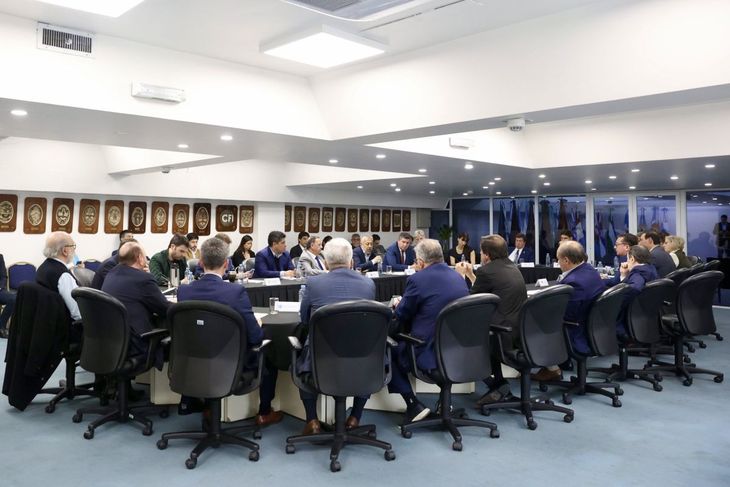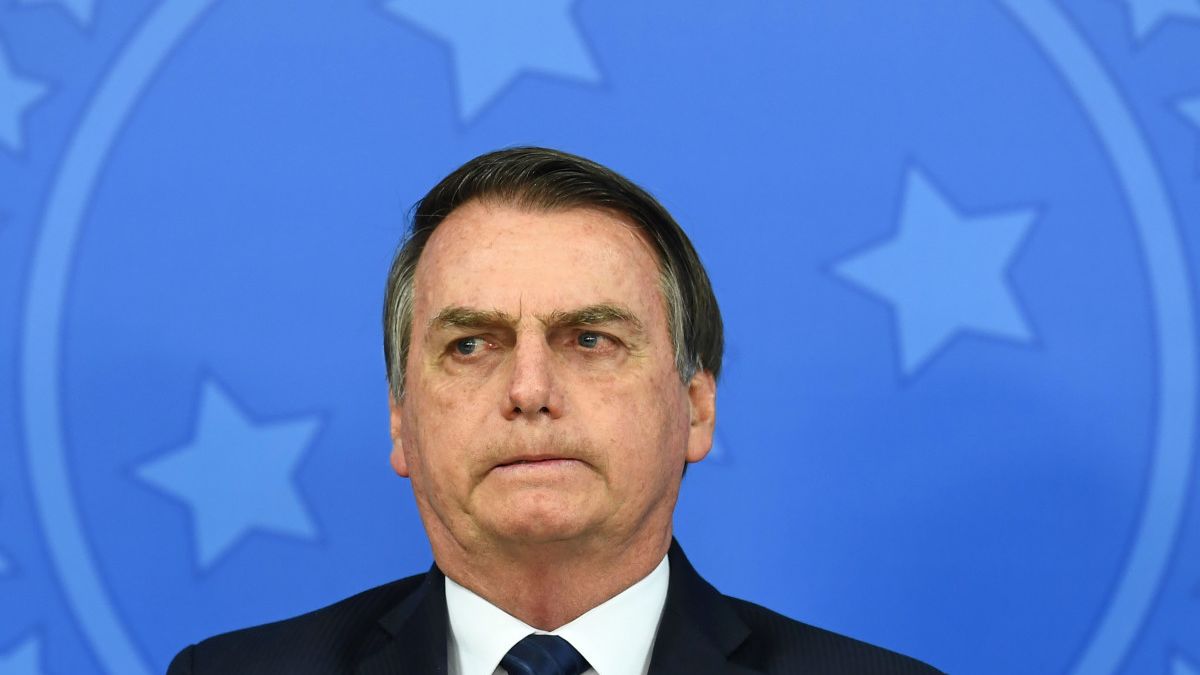The event took place at the CFI headquarters, located in the Buenos Aires neighborhood of Retiro, starting at 10 a.m. Provincial leaders and authorities from the 22 provinces that make up the organization – the City of Buenos Aires and San Luis are not part of it – arrived there, where they defined the continuity for another four years of the current director of the space.
Governors unanimously elected Ignacio Lamothe to head the CFI
The day began with uncertainties surrounding the position of the leaders of Together for Change (JxC) who tried, until the last minute, to present a unified candidate to contest the leadership of the organ. Although Lamothe forged good ties with all the districts, The truth is that, with 8 governors, the yellows saw the opportunity to fill the space.
However, the speed of the process and the lack of a unanimous view prevented them from finding a candidate that would satisfy all parties. Therefore, the scenario they were hoping for in the corridors of the building located at San Martín 871 ended up becoming a reality: The official was re-elected unanimously, after an agreement between the leaders of Union for the Homeland (UP), JxC and the provincialist forces.
Ignacio Lamothe CFI.jpg
Ignacio Lamothe was re-elected as head of the CFI for four more years.
However, the yellow coalition made use of its firepower and managed to Sebastian Garcia de Lucathe potential candidate who had the most sympathies among the PRO troops, would be the second director of the body, while another twin position remained vacant but would also be awarded to that space.
The most substantial thing of the day was that the agreement Among the provincial leaders, a change of president of the Assembly is contemplateda position currently held by the Peronist Gildo Insfranfrom Formosa. That place would be defined in the next few months and could be for the Santafesino Maximilian Pullarofrom the Radical Civic Union (UCR). Beyond the differences in political affiliation, those in the Cambiemita ranks praised Lamothe’s work. “Most have worked comfortably with him and without problems,” they confided from the entourage of a governor.
It is worth noting that to win the election, two-thirds of the votes of those present were needed. With the aim of gathering twelve supporters, the yellows began to forge ties with provincial forces. For example, to the eight raised hands of his own they added two more: that of the man from Santa Cruz Claudio Vidal and the vice-governor of Córdoba, Myrian Prunotto (Martín Llaryora is traveling in the USA).
But it was not enough, since the Patagonians Alberto Weretilneck (Black River) and Rolando Figueroa (Neuquén), who had pledged their vote for Felipe Alvarez -sponsored by Vidal- decided in favor of the current leadership. The consultant also remained in the pool Gaston Douek.
Peronism and provincialism revived the league of governors
The Peronist camp, for its part, achieved an ambitious goal: not only did its provincial leaders vote in solidarity, but they also did so in a mirror image of former allies, such as Weretilneck himself or the man from Salta. Gustavo Saenz. Within the celestial orbit, they were Axel Kicillof (Buenos Aires), Ricardo Quintela (Rioja), Sergio Ziliotto (The Pampas), Gerardo Zamora (Santiago del Estero), Gildo Insfran (Formosa) and Gustavo Melella (Tierra del Fuego, Antarctica and the South Atlantic Islands). Also Raul Jalil (Catamarca), who left the celestial orbit. The Tucuman, however, did not participate Osvaldo Jaldo. This move could mark a turning point in the future and revive strategic alliances from a not-so-distant past.
The hopes of the Cambiemita leaders began to fade as soon as the day began, when the governor of Rio Negro – one of the central figures for the election – announced his vote in advance: “With Ignacio Lamothe we have been able to define an agenda of issues that have to do fundamentally with development in Río Negro and we have no complaints to make. In the case of Río Negro, we support its continuity. We are satisfied with this management model.”
IFC Governors.jpg

The governors met at the CFI headquarters in the Buenos Aires neighborhood of Retiro.
The Tierra del Fuego native Melella also supported this position once the assembly was over. “The fact that it was unanimous, without any fights or discussions, is very positive,” said the president. He then demanded that the 2025 Budget have “a view with the people inside and a federal view, which is what we all want.”
“The CFI is the home of the provinces, it is the only real federal place where the 23 governors – because San Luis has now been added – are sitting and discussing. Beyond the figure of Lamothe, it is unity. This is what we recognize and celebrate today: there was unanimity.”he added.
On the other hand, the Australian leader denied that the result of the vote is a response to the cuts promoted by the Government: “Honestly, it goes in another direction. It has to do with unanimity, with the fact that there is dialogue between the governors beyond ideological differences. Honestly, it is not a political message to the Government; it is a message to our provinces. That the people of Tierra del Fuego recognize that there is unity with the people of Jujuy, Chaco or Misiones is positive for everyone.”
Regarding the re-election of Ignacio Lamothe, the CFI stressed that “he achieved unanimity beyond the political colors of the management.” “Nobody has anything to complain about; a federal management was carried out, with an equitable distribution of funds and without discrimination. That was appreciated,” This aspect was highlighted by Mendoza native Cornejo, who gave a closing speech with which many of those present agreed.
Embed – https://publish.twitter.com/oembed?url=https://x.com/ZiliottoSergio/status/1833547375425548290&partner=&hide_thread=false
Today, at the House of Argentine Provinces, all governors unanimously decided to continue the management of the Federal Investment Council (CFI).
There was also a unanimous commitment to work together for greater federalism.
— Sergio Ziliotto (@ZiliottoSergio) September 10, 2024
As a corollary, the 23 governors present issued a document critical of the administration of Javier Mileiin which they claim “the fulfillment of current transfers and debts corresponding to non-transferred funds, and the distribution of the Transport Compensation Fund, which is specifically financed through the Fuel Tax and which, however, has been interrupted.”
Finally, the text requests that, in view of the discussion of the 2025 Budget, “The Argentine provinces advocate for a more equitable distribution between the Nation and the provinces of the shared resources and will seek the appropriate instruments to be able to face their responsibilities, as established by the National Constitution, with the corresponding resources.”
Source: Ambito
David William is a talented author who has made a name for himself in the world of writing. He is a professional author who writes on a wide range of topics, from general interest to opinion news. David is currently working as a writer at 24 hours worlds where he brings his unique perspective and in-depth research to his articles, making them both informative and engaging.




